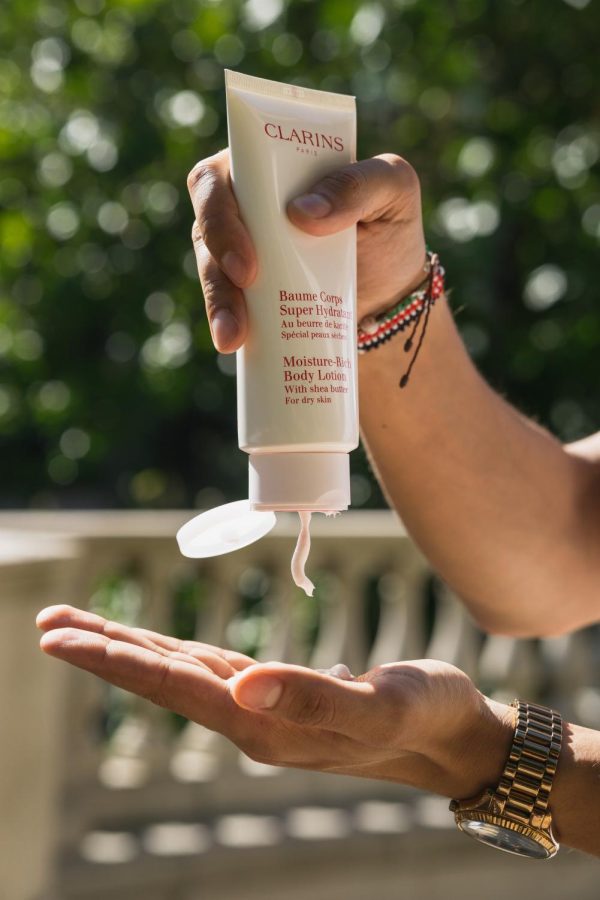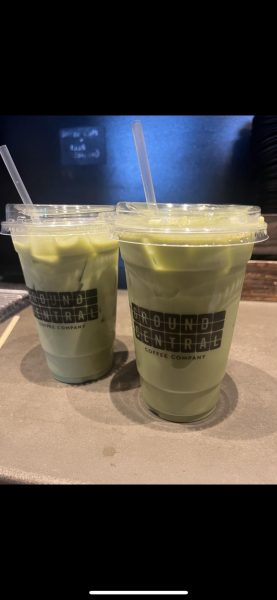Did You Apply Your Sunscreen?
Photo by Collins Lesulie on Unsplash
Sweat slowly trickles down the faces of the tan girls, recumbent on the vibrant, multicolored towel, as the sounds of waves crashing on the shore create an atmosphere of tranquility. The blazing, hot sun casts elongated shadows, while emitting harsh, scorching rays of light. The faint smell of sweet perfume, sunscreen, and salty sea water hangs in the still, summery air. The sun’s radiant rays require a form of protection that is essential for the wellbeing and health of individuals. Sunscreen is a product with a broad-spectrum formula that is necessary for the process of shielding one’s skin from exposure to the damaging beams of light.
As claimed in a February 15, 2021, Harvard Health article (health.harvard.edu) “The Science of Sunscreen,” “There are two types of sunscreens: Physical blockers reflect ultraviolet rays from the sun and contain one of two active ingredients, zinc oxide or titanium dioxide. Chemical blockers contain chemicals that absorb the sun’s ultraviolet rays. In the United States, these typically include aminobenzoic acid, avobenzone, octisalate, octocrylene, and oxybenzone.” The article also reveals, “Oxybenzone has received the worst press because of concerns that it may act as what is known as a hormone disrupter.” Based on past reports, oxybenzone has also been found to cause allergic reactions in some people. This demonstrates the different ingredients and chemicals that certain sunscreens contain. Thus, it is necessary to be aware of and acknowledge which type of sun protection is most suitable for an individual’s skin, depending on one’s skin type or complexion.
The sun protect factor (SPF) is typically found on a sunscreen bottle or block. Its purpose is to inform an individual about the amount of time that he/she can be exposed to the sun when wearing that product. The Centers for Disease Control and Prevention (CDC) website (cdc.gov) explains the different aspects of sun protection. An article published on the CDC website entitled “Sun Safety,” says, “Sunscreens are assigned a sun protection factor (SPF), which is a number that rates how well they filter out UV rays. Higher numbers indicate more protection.” The article also recommends using sunscreen that has an SPF of at least 15 or higher, as greater numbers of SPF specify that it provides better protection.
It is imperative to wear sun protection throughout the year. Sunscreen is vital because it protects an individual’s skin from harmful rays, blotching, skin age, sun tans, and even skin cancer. Ultraviolet rays (UV) are very damaging and can negatively affect a person’s skin. Health teacher Jenn Kramer elucidated, “When we fail to wear sunscreen, we increase our chances of getting skin cancer. We also increase our risk of premature aging, inflammation, and drying of the skin. Harmful UV rays can even impact your immune system.”
According to The Skin Cancer Foundation (skincancer.org), in a July 2022 article entitled “All about Sunscreen,” “Even when it’s cloudy, up to 80 percent of the sun’s UV radiation reaches the earth. Going unprotected on an overcast day can lead to skin damage.” This illustrates the importance of wearing sunscreen, as UV exposure can result in various long-term effects on an individual. Health teacher Brian Donaldson reiterates the significance of sunscreen. He shared, “Even though people may not believe it, sunscreen is important throughout the winter if one is trying to prevent skin cancer, aging, or sunspots. Skin protection is necessary every day of the year, regardless of the temperature.” Donaldson argued that applying sun protection is critical, despite the season or temperature, as it will make a person less susceptible to the harmful effects of sun exposure.
Freshman Samantha Marsiglia was asked whether she uses sunscreen on a regular basis. Marsiglia replied, “I know that sunscreen is important, but I usually forget to apply it, or I do not have it with me when I need it.” This mirrors the attitude of many teenagers regarding the usage of sunscreen. Adolescents must recognize and acknowledge that in the modern world, it is very easy to find products that have some form of sun protection. Several moisturizers, lotions, ointments, and creams contain sunscreen, proving that applying sunscreen can be very simple and will only benefit an individual.
Sunscreen is essential for the protection of an individual’s skin against harmful rays, skin aging, blotching, sunburn, and skin cancer. Therefore, it is necessary for adolescents to be more aware of the significance of sunscreen, as they will suffer negative effects in the future because of not applying or wearing sunscreen consistently.






















